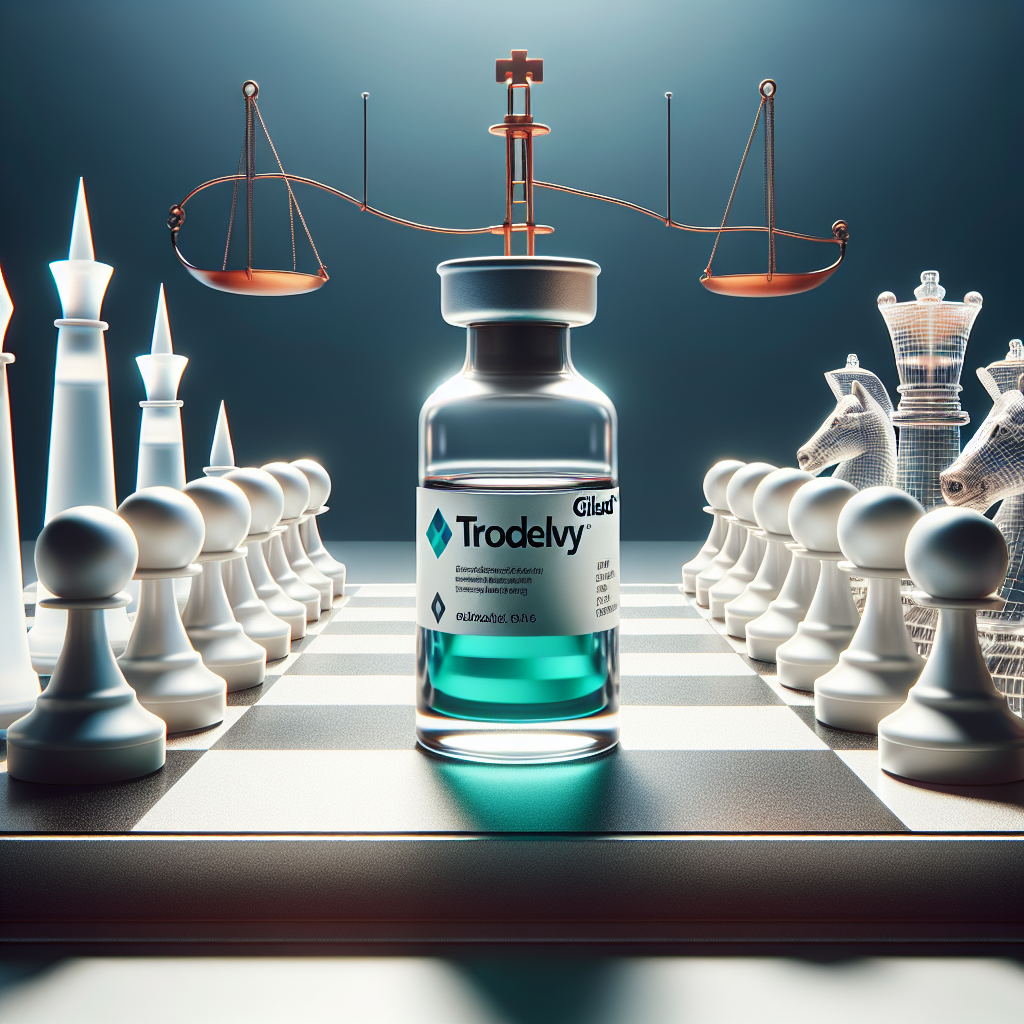Pharma Stocks Today: Navigating the Blockbuster Drug Dilemma
The pharmaceutical industry often presents a paradox for investors: while the discovery of blockbuster drugs can lead to significant revenue inflow and stock price surges, the inevitable loss of patent protection raises questions about sustainability and long-term growth. The US drug maker AbbVie is a case study in this phenomenon, illustrating both the vulnerabilities and the strategies employed to overcome them.
AbbVie’s Journey Post-Humira
AbbVie was spun out of Abbott Laboratories in 2013 and experienced an impressive surge in sales, climbing from $18.8 billion to $58.1 billion by 2022, largely bolstered by the success of its rheumatoid arthritis drug, Humira. Humira enjoyed nearly two decades of patent protection, generating peak annual sales of around $21.2 billion in 2022; however, the entrance of numerous lower-cost generic competitors in early 2023 has raised alarms. The projected sales for Humira are set to drop drastically, with estimations forecasting revenues of $9 billion in 2024 and a further decline to $5.7 billion in the current year.
Strategic Growth Beyond Humira
Despite the impact of Humira’s patent expiration, AbbVie is demonstrating a potential path toward sustainable growth. The company predicts a high single-digit compound annual growth rate (CAGR) through the end of the decade. Notably, the consistent performance of follow-on drugs, Skyrizi and Rinvoq, has played a pivotal role, contributing to AbbVie outperforming market expectations for Q4 2024 and raising long-term sales projections for these drugs from $27 billion to $31 billion by 2027.
This robust pipeline of innovative immunotherapy drugs, combined with no immediate major patent losses until the 2030s, offers investors a promising horizon. However, the path has not been devoid of obstacles. Last November, AbbVie disclosed a $3.5 billion charge due to the failure of its schizophrenia treatment, Emraclidine. This setback, part of the company’s $8.7 billion acquisition of Cerevel Therapeutics, has cast a shadow over AbbVie’s diversification strategies, stirring concerns among investors.
Valuation and Market Sentiment
Despite some challenges, AbbVie’s shares continue to remain attractively priced, trading at roughly 15 times forecast earnings amidst projected earnings growth of nearly 17% in the coming two years. This favorable valuation has caught the attention of numerous institutional investors; indeed, AbbVie ranks as the 15th most popular stock among elite fund managers tracked by Citywire, which demonstrates considerable smart-money interest. The company currently boasts a top AAA rating from Citywire, indicative of the confidence from the investment community.
Diverse Market Segments Support Growth
Nearly half of AbbVie’s sales are attributed to immunotherapy drugs, such as Skyrizi and Rinvoq, but the company is diversifying its portfolio through various high-potential areas. Its aesthetics division, which encompasses popular treatments like Botox, represents approximately 9% of sales and is expected to contribute solid growth in the years ahead. Furthermore, AbbVie’s neuroscience division (16% of sales) and oncology division (12% of sales) show promising long-term prospects, aided by the successful acquisition of ImmunoGen—a strategic move expected to enhance its drug development capabilities in cancer treatments.
Debt Management and Dividend Growth
AbbVie’s recent acquisitions have led to increased debt levels, which were reported at $59.9 billion by the end of last year. However, analysts foresee a rapid decline in debt levels, predicting a drop to $32.6 billion by 2027, aligning with a projected earnings before interest, tax, depreciation, and amortization (EBITDA) of $34.4 billion for that year. This financial resilience is further reflected in AbbVie’s robust history of dividend growth, with forecasts suggesting a yield of approximately 3.4% in the next 12 months.
Conclusion: A Brighter Future Ahead
While the loss of exclusivity on Humira marks the end of an era for AbbVie, it increasingly appears that the company is poised for a brighter future, armed with a robust pipeline and diversified portfolio. The strategic innovations in immunotherapy and other therapeutic areas, coupled with sound debt management and continued investor interest, suggest that AbbVie may very well navigate the challenges posed by loss of patent protection. This transformative phase could potentially position AbbVie as a solid investment opportunity in the evolving pharmaceutical landscape.
















